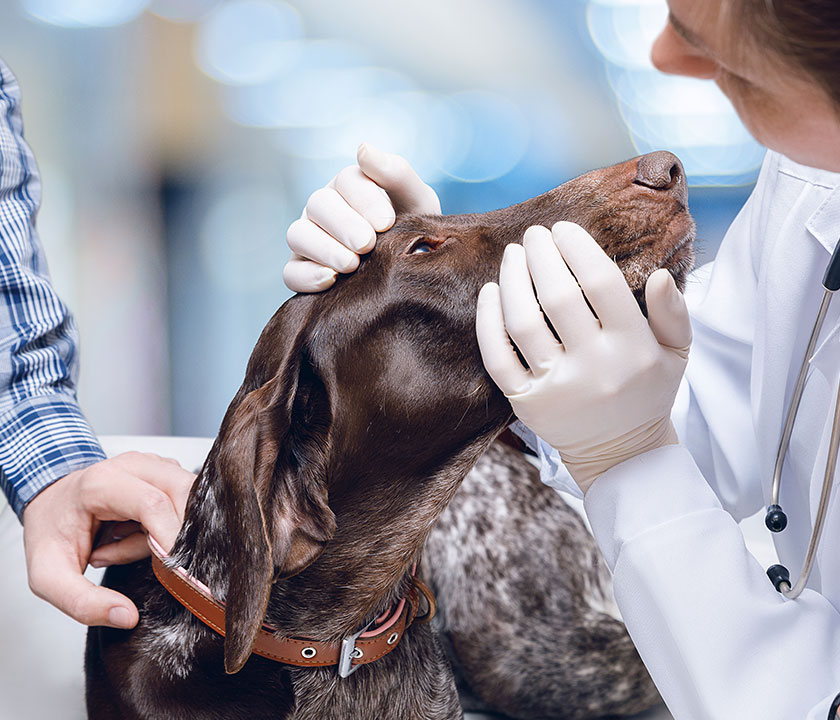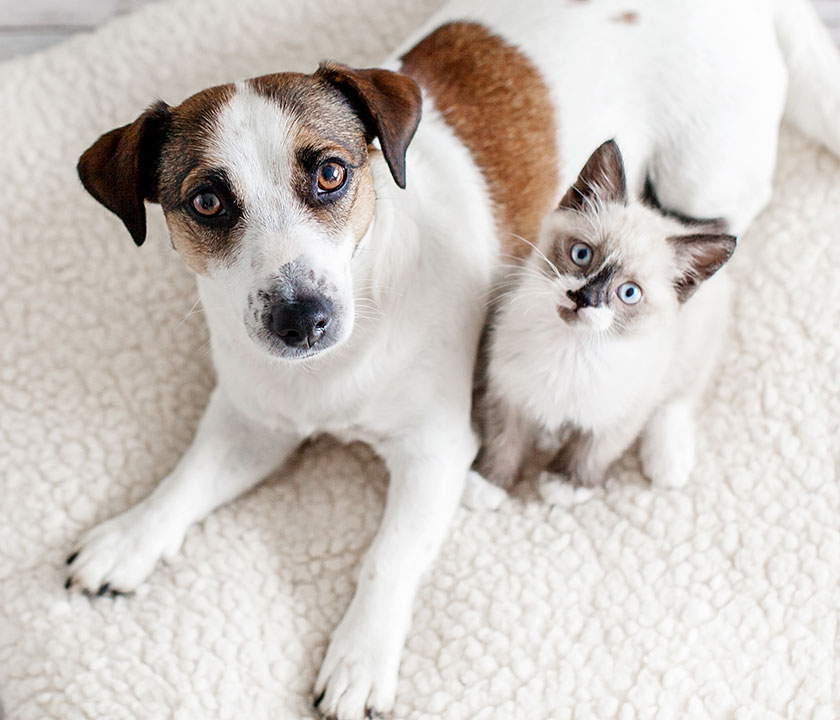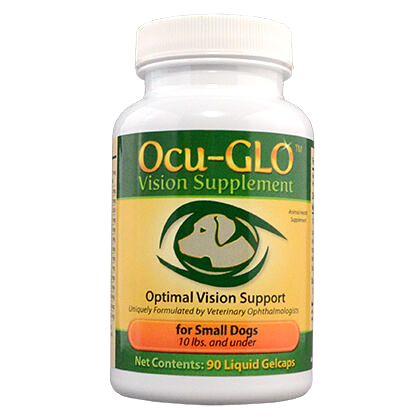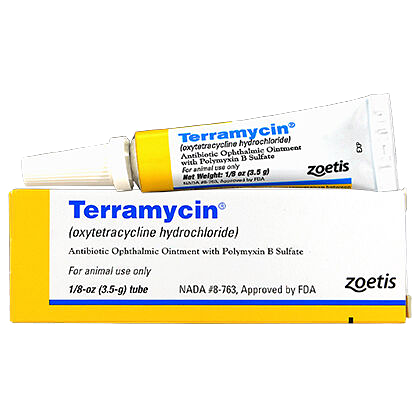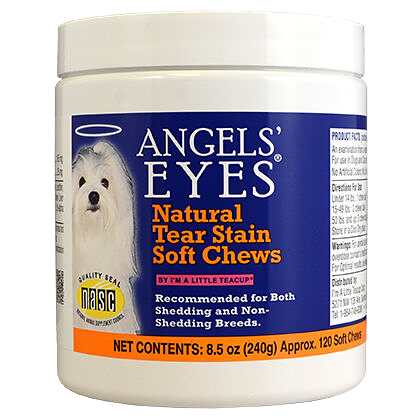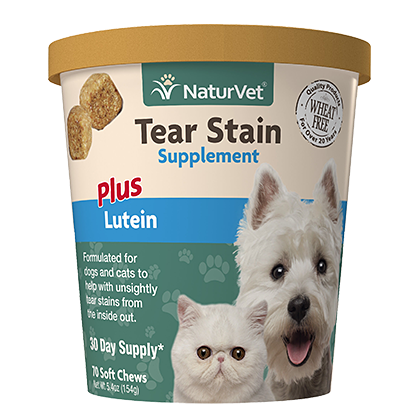Eye Care For Dogs and Cats
Protect Your Pet's Eye Health
There's more to your pet's vision than what meets the eye.
At first glance, your dog or cat's vision is not very impressive. They're red-green color blind, seeing the world in a narrow range of blues and yellows. Our pets are also near-sighted, unable to see across great distances, and they tend to have a frontal blind spot that prevents them from seeing a treat dropped just under their nose.
At night, though, your dog or cat's vision really shines, with tapetums, a reflective layer of tissue at the back of each eye that help them see clearly in dim lighting.
What's more, your pet's eyes are windows to their whole-body health. Clear, bright eyes are a sign that your pet is thriving. But just like humans, dogs and cats are commonly affected by eye issues like conjunctivitis, cataracts, and glaucoma.
Conjuntivitis refers to “pink eye,” or redness of the sclera. A dog or cat's sclera, the white portion around the iris, is sensitive to irritation and may show signs of inflammation from anything from a bacterial infection to a viral infection like feline herpesvirus, allergies or a corneal scratch.
Red or pink, irritated eyes should be examined by a veterinarian as soon as possible, as eye issues are painful and can lead to complications like vision loss if left untreated.
Cataracts, a common condition seen in older humans, affects senior pets too. Cataracts are cloudy protein deposits that gradually build up over the cornea. Most of the time, cataracts are genetic, but they can also be linked to diabetes or a traumatic injury. They're incredibly common in senior cats and dogs, and can be treated through surgery.
Glaucoma is another common eye condition seen in senior pets. The front of the eye contains fluid that helps it keep its shape. In pets with glaucoma, the fluid does not drain properly, causing a painful buildup of pressure that can damage the optic nerve and ultimately cause blindness. Diagnosed early, glaucoma can be managed with medication or surgery.
Why Protect Your Pet's Eye Health
Many eye issues in pets are genetic, and others can be attributed to old age. While it's not always possible to control the risk factors that can lead to eye problems, you can support your pet's eye health with preventative care and dietary support.
To care for your pet's vision and eye health:
- Check daily for redness or irritation of the sclera, eyelids, and mucosal tissue
- Only use eye wash to clear away dirt, hair, allergens, and debris as needed
- Give ocular health supplements like omega-3 fatty acids and lutein
- Protect eyes from dirt and debris by avoiding dry, windy conditions or hiking trails with lots of underbrush
- Use proper eye protection like pet goggles or sunglasses, mesh hoods, or a covered pet stroller or bike trailer
- Seek urgent care for swelling, corneal abrasions or scratches, eye discharge, or painful, irritated eyes, as eye emergencies can quickly lead to complications like vision loss
Remember to take your pet to the veterinarian at least once a year for a wellness visit. During a routine wellness exam, your vet will check your pet's eyes for any signs of irritation, discoloration, or other symptoms that may require further examination.
Protect Your Pet's Vision and Eye Health
PetMeds® carries everything you need to support your pet's vision and eye health. Shop now to save on dog and cat eye care essentials delivered to your doorstep.
Never Miss A Dose With PetMeds® AutoShip
Save 35% OFF your first AutoShip order | Use code SAVE35 in cartFrequently Asked Questions About Eye Care for Pets
Still have questions? Learn more with our free Pet Health Advice resource center or talk to your veterinarian about how your pet's eye care.


















